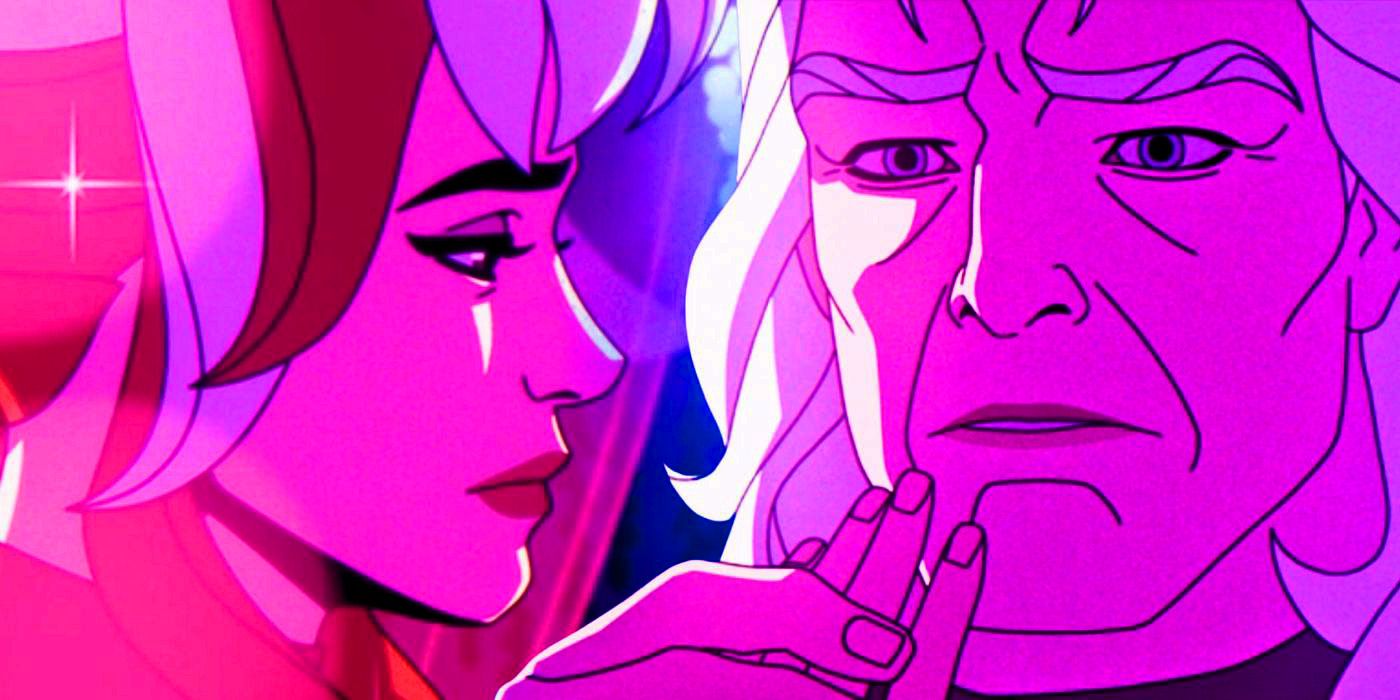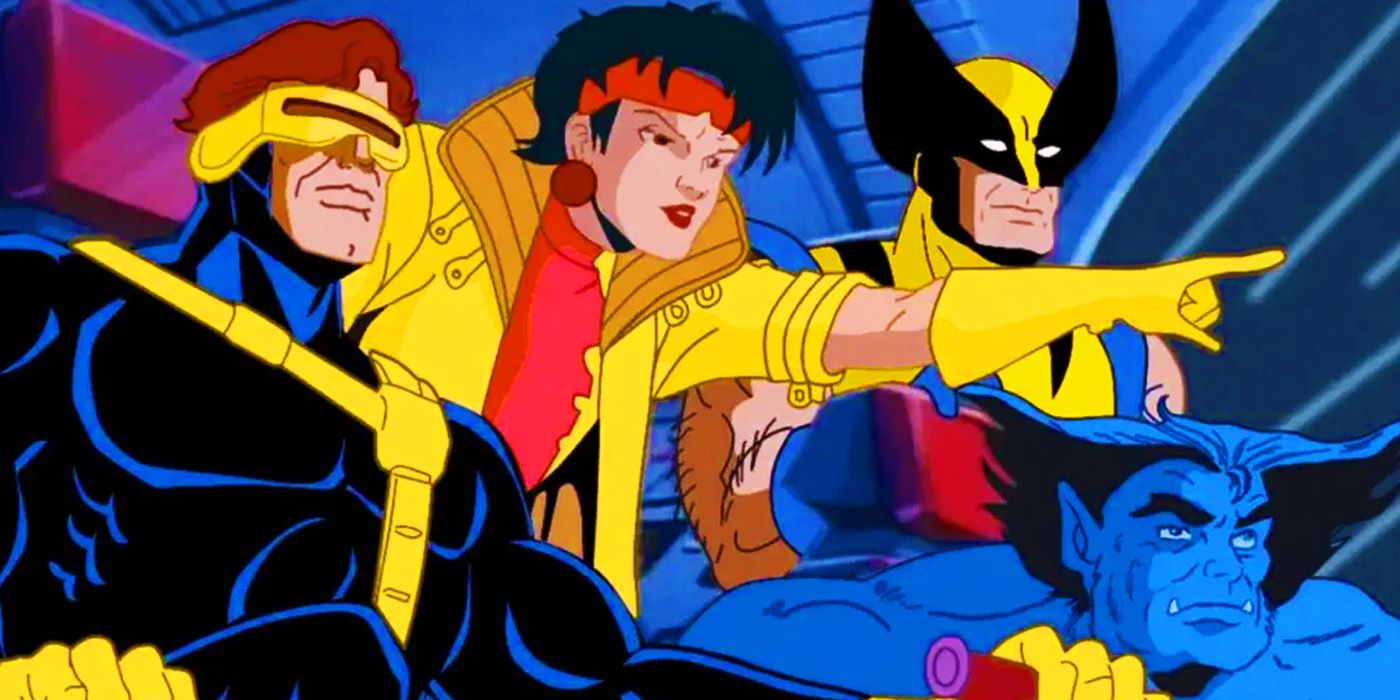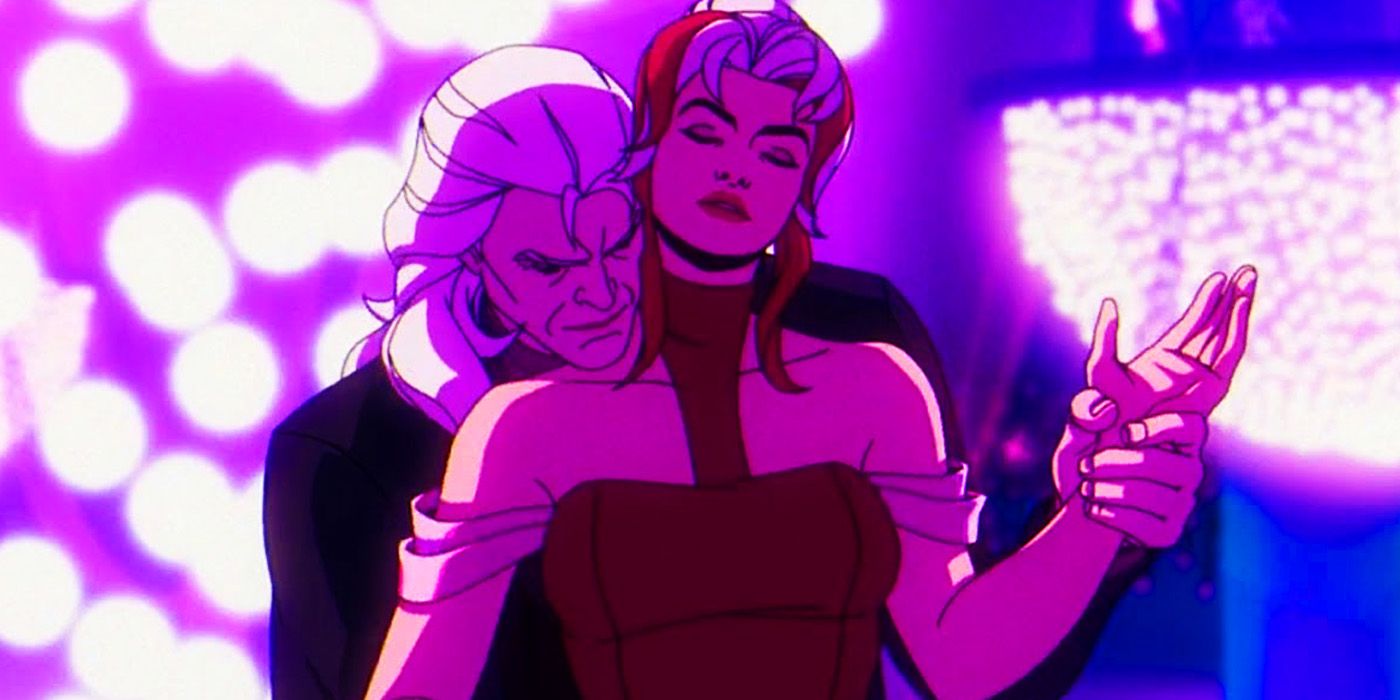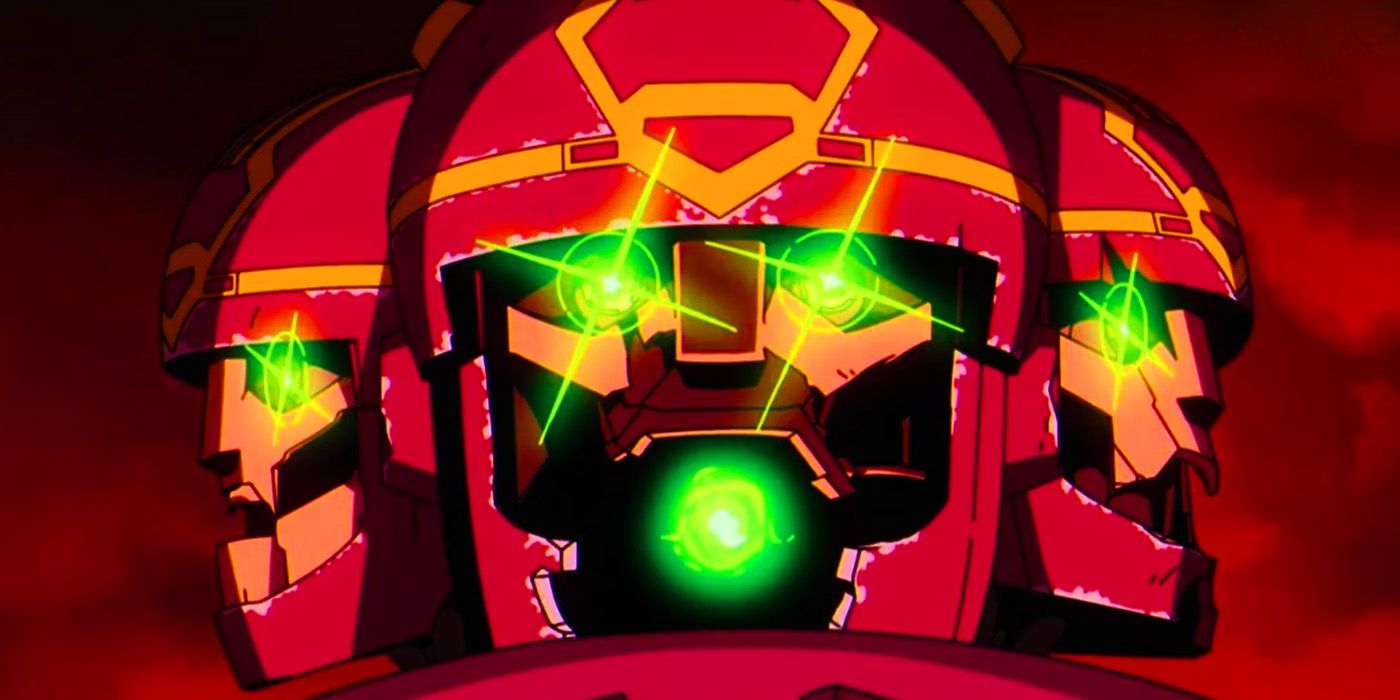X-Men ’97 episode 5’s story packed a huge emotional punch, but one moment in the dramatic episode has a deeper meaning that may have spelt disaster.

Warning: This article contains spoilers for X-Men ’97 episode 5, “Remember It.”
One easily-missed detail in X-Men ’97 episode 5 has a deeper hidden meaning that connects back to X-Men: The Animated Series, and may have foreshadowed the episode’s disastrous ending. Developed by Marvel Studios Animation, but set outside the main MCU timeline, X-Men ’97 premiered on March 20, and has adapted major Marvel Comics storylines such as 1984’s Lifedeath and 1988’s Inferno into animation. This was taken one step further with X-Men ’97 episode 5, “Remember It”, which brought Marvel Comics’ E is for Extinction event to life, detailing the tragedy of the Sentinels’ attack on the mutant nation of Genosha.
X-Men ’97 episode 5 saw X-Men members Magneto, Rogue and Gambit travel to Genosha to welcome the mutant society into the United Nations, with Magneto being chosen to govern the new island state. Magneto offered Rogue the chance to govern alongside him, as the pair’s romantic history was explored, aided by Magneto’s ability to touch Rogue’s bare skin unharmed. Before making her decision, Rogue engages Magneto in a dance to the tune of Ace of Base’s 1992 song, “Happy Nation”, which has a deeper connection to X-Men: The Animated Series’ history, and may have even foreshadowed the attack on Genosha.
Ace Of Base’s “Happy Nation” Was Released Alongside X-Men: The Animated Series’ Premiere

X-Men: The Animated Series’ double-premiere, “Night of the Sentinels,” released on October 31 and November 7, 1992, kick-starting five years of animated X-Men stories before the series came to an end in September 1997. This makes Ace of Base’s “Happy Nation” an interesting song choice for X-Men ’97 episode 5’s dance sequence, as the song was released as part of the Swedish duo’s debut album, “Happy Nation,” on November 2, 1992. “Happy Nation” releases only three days after X-Men: The Animated Series’ first episode, and within the week of the series’ double-premiere, giving it a special significance in X-Men ’97.
“Happy Nation” Sets X-Men ’97 Firmly In The 1990s

Even though X-Men ’97 is releasing in 2024, the series is well and truly set in the 1990s, and the song choice of Ace of Base’s “Happy Nation” only solidifies this even further. X-Men ’97 has delivered several Easter eggs and references hinting at its ’90s setting, perhaps most notably with Gambit’s now-iconic crop top in episode 1, “To Me, My X-Men,” which was very fitting for the time period. This has only been reinforced by the reinvention of the X-Men: The Animated Series theme and score throughout X-Men ’97, and the decision to play “Happy Nation” in episode 5.
“Happy Nation” was a huge hit for Ace of Base, managing to reach number one in the French, Danish and Finnish charts in 1993 and 1994. The song has persisted as one of the duo’s most notable releases, having a hand in defining their career, so it has an important place in the development of dance music during the period of The Animated Series and X-Men ’97. This makes “Happy Nation” an inspired choice to have Magneto and Rogue dance to in X-Men ’97 episode 5, but Marvel Studios Animation may have also chosen the song due to its controversy.
“Happy Nation” May Have A Deeper Meaning That Spelled Danger For The X-Men On Genosha

In the years since its release in 1992, many have accused Ace of Base of promoting Nazi concepts in “Happy Nation,” as some of the song’s lyrics have been speculated to be referring to Nazi ideals. Ulf Ekberg’s (one half of Ace of Base) known history as a neo-Nazi may support these rumors, though Ekberg has spoken out many times about his regret for affiliating himself with this group, and has stressed that neither Ace of Base nor “Happy Nation” have any connection to these concepts. Nevertheless, this controversy may have been pivotal to choosing “Happy Nation” for X-Men ’97.
Playing “Happy Nation” in the moments before a genocide was committed on Genosha in X-Men ’97 episode 5 spoke volumes, as the song’s rumored themes relate directly to a real world genocide. Having this song play while Magneto and Rogue are dancing is also poignant, as Magneto’s backstory is rooted in the Holocaust, and his German origins even presented themselves in X-Men ’97 episode 5, as he urged Leech to “habe keine Angst,” have no fear. “Happy Nation’s” rumored themes perhaps foreshadowed the disaster in Genosha moments before it occurred, proving that it was perhaps the perfect song to choose.


